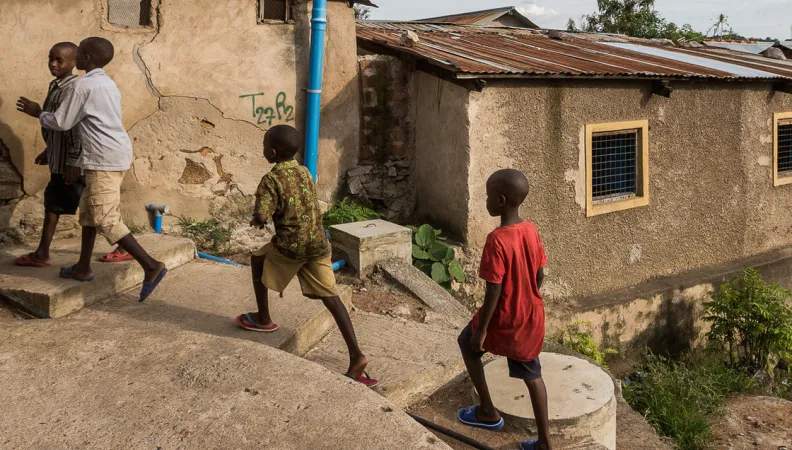Share the page
Escaping child labor in Tanzania
Published on

Child labor remains a global scourge, affecting 160 million children worldwide. Sub-Saharan Africa is the most affected region, where one in four children – approximately 86.6 million – are forced to work. In northern Tanzania’s Geita mining region, the NGO Plan International France is helping children escape forced labor and return to school.
escaping child labor in Tanzania
Tanzania, the largest country in East Africa, has one of the youngest populations on the continent. However, 80% of the population lives on less than $2 per day. Although the legal minimum working age is 14, and the average age for working in mines is 18, 25% of children aged 5–17 are still engaged in child labor.
Across Tanzania, 4.2 million children are subjected to the worst forms of forced labor. In the Geita region, 96% of school absenteeism is linked to child labor in mining, quarrying, fishing, and domestic work.
While working in gold mines, children are exposed to mercury poisoning and risk injury – or worse – from heavy tools and landslides. Child abuse is also a danger, especially for girls, with one in three having experienced sexual violence at work.
Protecting children from forced labor
To support Tanzania’s efforts to achieve Sustainable Development Goal (SDG) 8.7, which calls for the eradication of child labor in all its forms by 2025, AFD is collaborating with Plan International France to end the worst forms of child labor and abuse, in the mining and fishing sectors of the Geita region.
“The main goal of this project is to eliminate child labor and violence against children by strengthening the child protection system and supporting economic activity within communities,” says Peter Mwakabwale, Program Director at Plan International Tanzania.
Bringing children back to school
Through this initiative, 2,687 children have escaped forced labor and are now attending school. The program provides reintegration services, equipping these children with the skills necessary to regain their potential. Additionally, 464 teachers and guidance counselors have been trained to implement an organized admission and registration process, ensuring accurate child attendance monitoring. Schools have also established discussion clubs where children learn about their rights and how to speak out against child labor.
Watch the video: Burundi: raising awareness against violence from an early age
Holding industries accountable
To address the root causes of child labor, the program has trained small-scale mining and fishing company managers on existing labor laws, encouraging them to adopt best practices and to refuse to employ children. In total, 4,728 fishermen and 5,173 small-scale miners in the Geita region have received training on child protection measures.
Empowering girls through healthcare and education
Recognizing the specific vulnerabilities of girls, the program has trained 283 healthcare professionals and 59 social workers to provide girls with safe and affordable sexual and reproductive health services. As a result, awareness among adolescent girls regarding their sexual and reproductive rights has increased by 42.1%.
Watch the video: Women’s Economic Empowerment in Africa
Changing societal attitudes
As the project progresses, its long-term goal is to shift societal behaviors and attitudes toward child labor and violence against children by raising awareness of its harmful impacts.
Plan International France is working closely with government ministries, regional and district authorities, as well as two local partners:
- SEDIT (Socio-Economic Development Initiatives in Tanzania)
- KIVULINI, an NGO advocating for women’s rights.
Through this collaborative approach, AFD and its partners are striving to reach a future where no child is forced into labor, and every child has access to education and protection.
